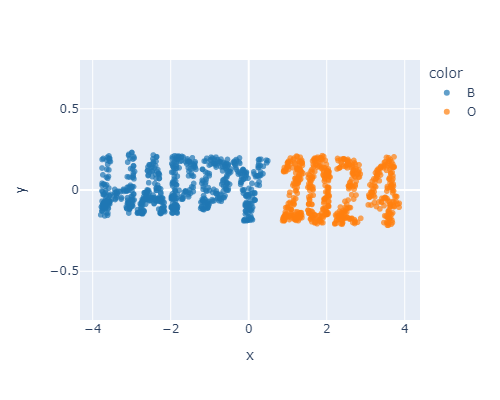Dec 29
/
Gladys Casas Cardoso
Isomap Revealed: Transforming Data into Insights
Isomap Revealed: Transforming Data into Insights
Dec 29
/
Gladys Casas Cardoso
Today, we are exploring a topic at the heart of understanding complex datasets - Dimensionality Reduction. Rigorously, we are unraveling the mysteries and potential of the Isomap technique.
Unveiling Isomap
Isomap, or Isometric Mapping, is a powerful tool in the data scientist's arsenal. It is not just about reducing the dimensions of data; it is about preserving the true nature of the data structure. Where traditional techniques might falter in capturing the essence of complex datasets, Isomap excels by maintaining geodesic distances between points, ensuring a more authentic representation in a lower-dimensional space.
The Swiss Roll: A Visual Metaphor
Consider a classic Swiss roll, with its layered, spiral structure. It is a metaphor for complex, multi-dimensional data. As unrolling the Swiss roll reveals its proper form, applying Isomap to a dataset reveals its hidden dimensions and structures.
The Isomap Process
How does Isomap transform a tangled data web into clear, insightful information? Let's break it down:
1. Data Preparation: Our dataset, resembling a 3D Swiss roll, contains points, each with three-dimensional coordinates.
2. Applying Isomap: We apply Isomap to this dataset. The algorithm begins by constructing a neighborhood graph. Then, it calculates the shortest paths between points, estimating geodesic distances. These distances are crucial in mapping the data accurately onto a lower-dimensional space.
3. Revealing Insights: As we reduce dimensions, the complexity of the Swiss roll unravels, revealing patterns and structures that were previously hidden.

Why Choose Isomap?
As our Swiss roll example, Isomap shines in scenarios where data lies on a curved manifold. It is adept at capturing non-linear relationships, a task where linear methods like Principal Component Analysis might fall short.
The Bigger Picture
Isomap is not just a tool; it is a lens that clarifies the chaos of complex data. It is a testament to the power of advanced analytical techniques in making sense of the intricate patterns that define our world of data.
Happy Data Exploring!

We are an online educational platform that helps professionals and aspiring individuals to succeed in their goals.
Featured links
Copyright © 2025
